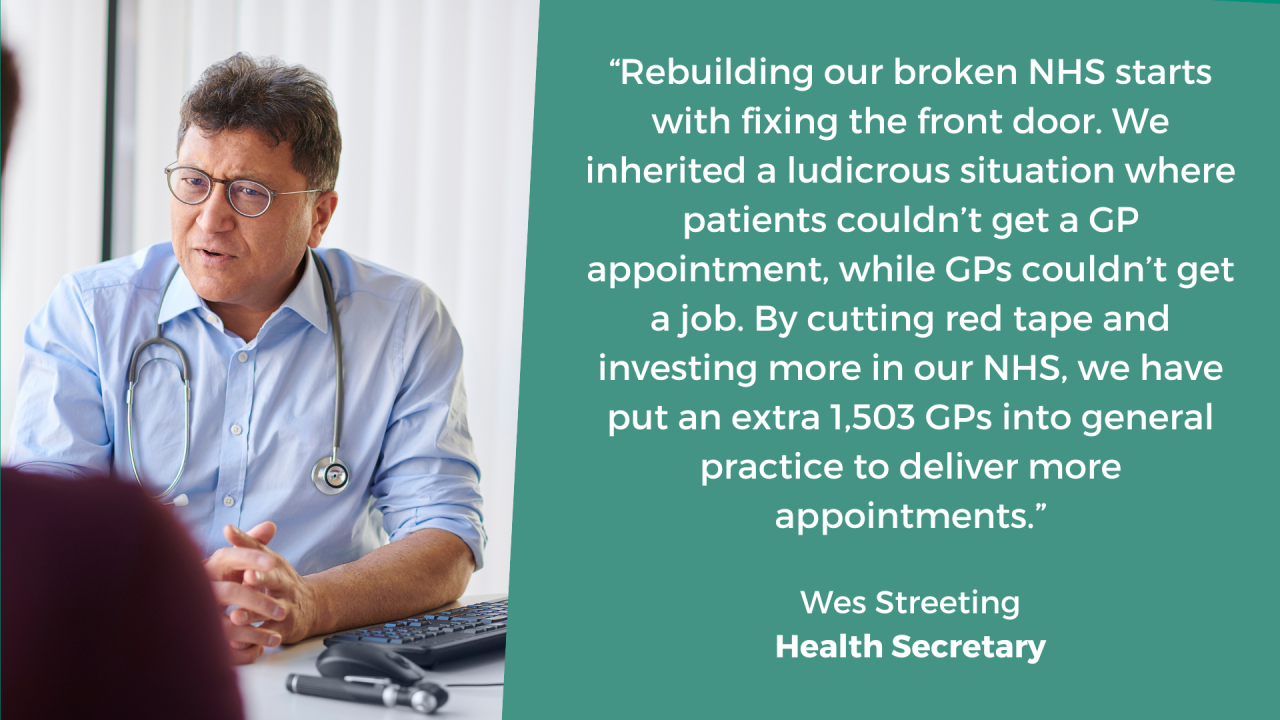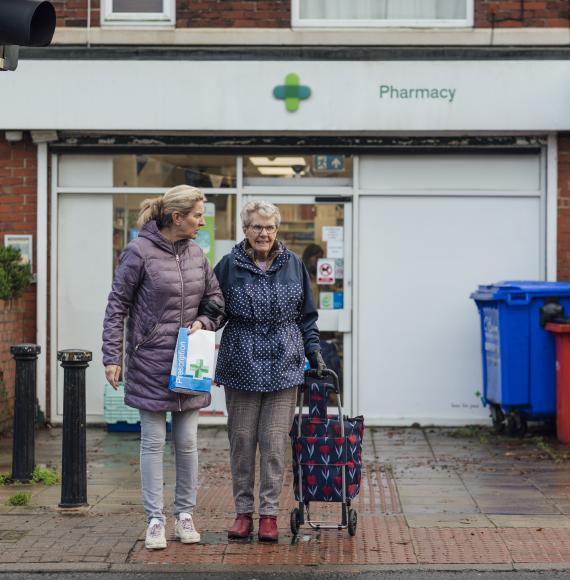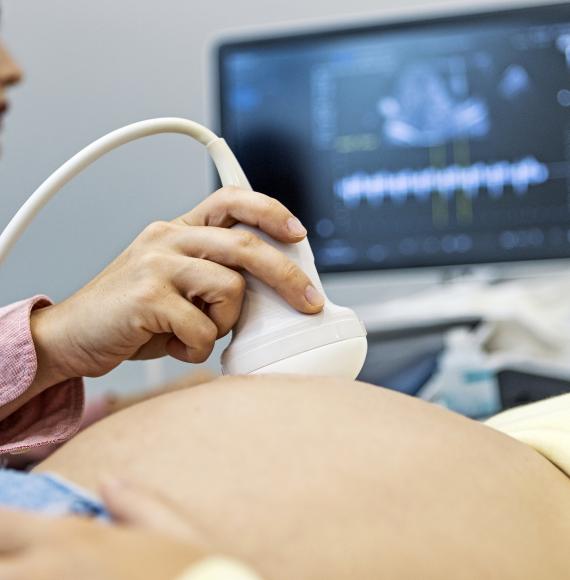The UK government has successfully recruited an additional 1,503 GPs since 1 October, as part of its Plan for Change.
This significant recruitment drive aims to alleviate the ongoing issue of patients struggling to secure doctor appointments, thereby easing pressure on GPs and reducing waiting lists.
The recruitment boost is complemented by changes to the GP contract for 2025-26, which will help eliminate the 8am scramble for appointments that many patients currently face. When the government took office, unnecessary red tape hindered the hiring of newly qualified GPs, leaving over 1,000 graduates facing unemployment. Additionally, there were 1,399 fewer fully qualified GPs compared to a decade ago, highlighting the impact of years of underfunding and neglect on GP services.
To address these issues, the government cut the red tape and invested an extra £82 million, enabling networks of practices to hire the new GPs. This funding will continue beyond this year, thanks to additional allocations announced in the Budget. As a result, communities across England will benefit from more timely care, shifting healthcare from hospitals to the community.

Wes Streeting, Secretary of State for Health and Social Care, commented:
“Rebuilding our broken NHS starts with fixing the front door. We inherited a ludicrous situation where patients couldn’t get a GP appointment, while GPs couldn’t get a job. By cutting red tape and investing more in our NHS, we have put an extra 1,503 GPs into general practice to deliver more appointments.
“The extra investment and reforms we have made will allow patients to book appointments more easily, to help bring back the family doctor and end the 8am scramble.
“It is only because of the necessary decisions we took to increase employer National Insurance that we are able to recruit more GPs and deliver better services for patients. The extra investment and reform this government is making, as part of its Plan for Change, will get the NHS back on its feet and make it fit for the future.”
The recruitment of the additional GPs was made possible by the Chancellor's tough but fair decisions at the Budget, which provided nearly £26 billion to revitalise the NHS. This funding has already facilitated over two million extra appointments since July, meeting the government's target seven months early and reducing the waiting list by 193,000.
Last year, the government added GPs to the additional roles reimbursement scheme (ARRS) and provided extra funding, allowing primary care networks (PCNs) to recruit GPs more quickly. The government has since delivered the largest boost to GP funding in years, with an extra £889 million allocated for general practice in 2025-26.
In addition to the financial investment, new reforms are being implemented to modernise general practice. From October, GP surgeries must allow patients to request appointments online throughout working hours, freeing up phone lines for those who prefer to book by phone and enabling practices to triage patients based on medical need. More patients will also have the option to book appointments with their regular doctor, reviving the concept of the family doctor.
Reducing waiting times and improving access to healthcare are top priorities in the government's Plan for Change, which aims to reform the health service, rebuild the NHS, and enhance living standards, which are currently growing at their fastest rate in two years.
Image credit: iStock



















